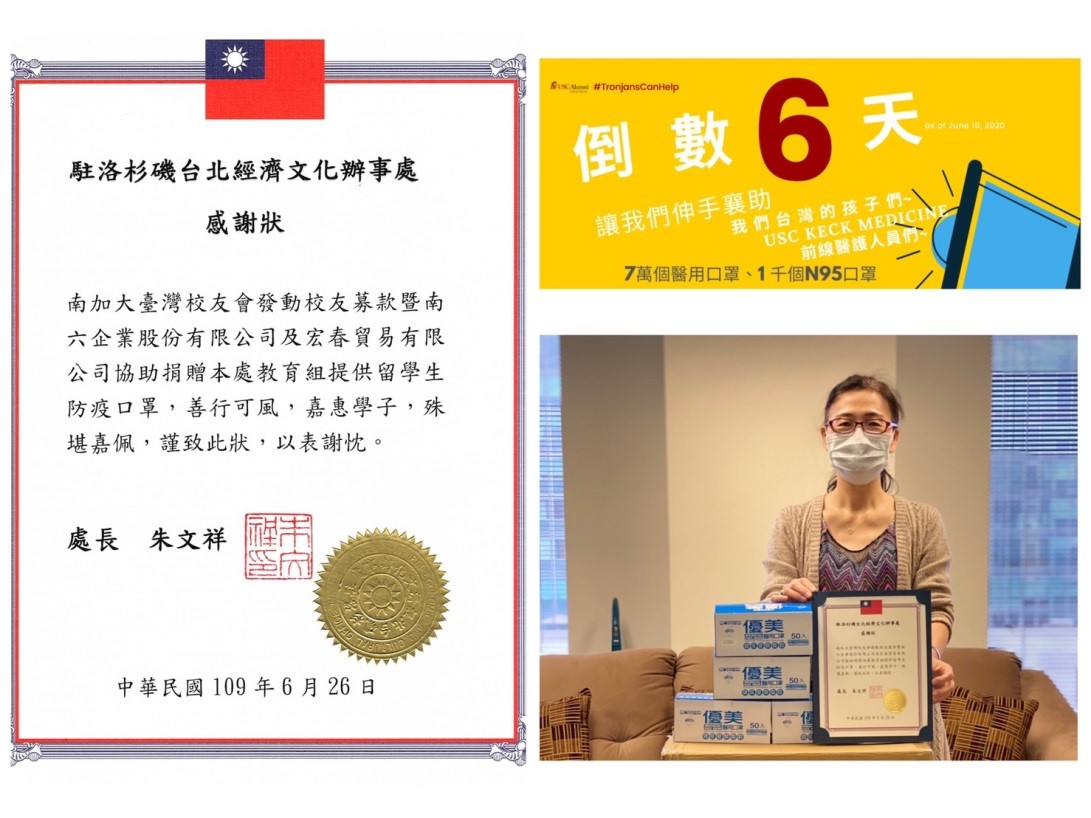#TaiwanCanHelp & #TrojansCanHelp in these Global Pandemic Times

As countries around the world are grappling with the Covid-19 pandemic, many state and local governments have been challenged by the question of whether they should mandate the wearing of masks to limit the spread of the virus.
According to a news report released by the University of California at San Diego (UCSD), a team of interdisciplinary scientists from Caltech, Texas A&M and UCSD remotely worked together to study the transmission pathways of the highly contagious coronavirus, and concluded that mandating the wearing of face coverings would determine the pandemic’s trends and significantly reduce the number of infections. This newly published research study indicates that the inexpensive practice of wearing face masks is one of the most effective ways to stop the COVID-19 pandemic.
Taiwan learned important lessons from the SARS outbreak in 2003 and so immediately took preventive measures as soon as a SARS-like virus first appeared in late 2019. Taiwan has managed to avoid lockdowns and has been widely recognized by the international community as a democratic model of excellence in fighting COVID-19. A variety of measures have contributed to this success: early diagnosis and treatment of confirmed cases, strict border and quarantine protocols, mask-wearing and social distancing, and effective use of big data analysis and technology.
While prioritizing the needs of Taiwanese at home and abroad, the government has used its excess capacity to contribute to international epidemic prevention efforts. Taiwan has joined hands with other nations, pursuing international cooperation to develop a vaccine and share its disease-fighting expertise and technology, and extended humanitarian assistance to help address this global crisis. As COVID-19 has spread across the world, Taiwan ramped up surgical face mask production and has donated more than 52 million masks to countries hard-hit by the pandemic. This includes providing more than 9 million to the United States.
In addition to these government efforts, Taiwan citizens and NGOs have been generously donating personal protective equipment to countries in need. Students and athletes of the University of Southern California (USC) are known as Trojans, and the Trojans in Taiwan are an excellent example. The USC Alumni Club of Taiwan donated tens of thousands of medical and N95 masks to USC for the USC health workers on the frontlines.
The USC alumni organized a fundraising campaign in Taiwan and got an overwhelming response within a few weeks. They procured more masks than their original target and quickly shipped the urgently needed medical supplies from Taiwan to their alma mater in the US. Their generosity and concern also extended to sending masks for members of the Taiwanese Student Association at USC and personnel at the Education Division of TECO in Los Angeles. The TECO office plans to distribute the masks to Taiwanese students who are studying at other universities in the southwest of the US.
